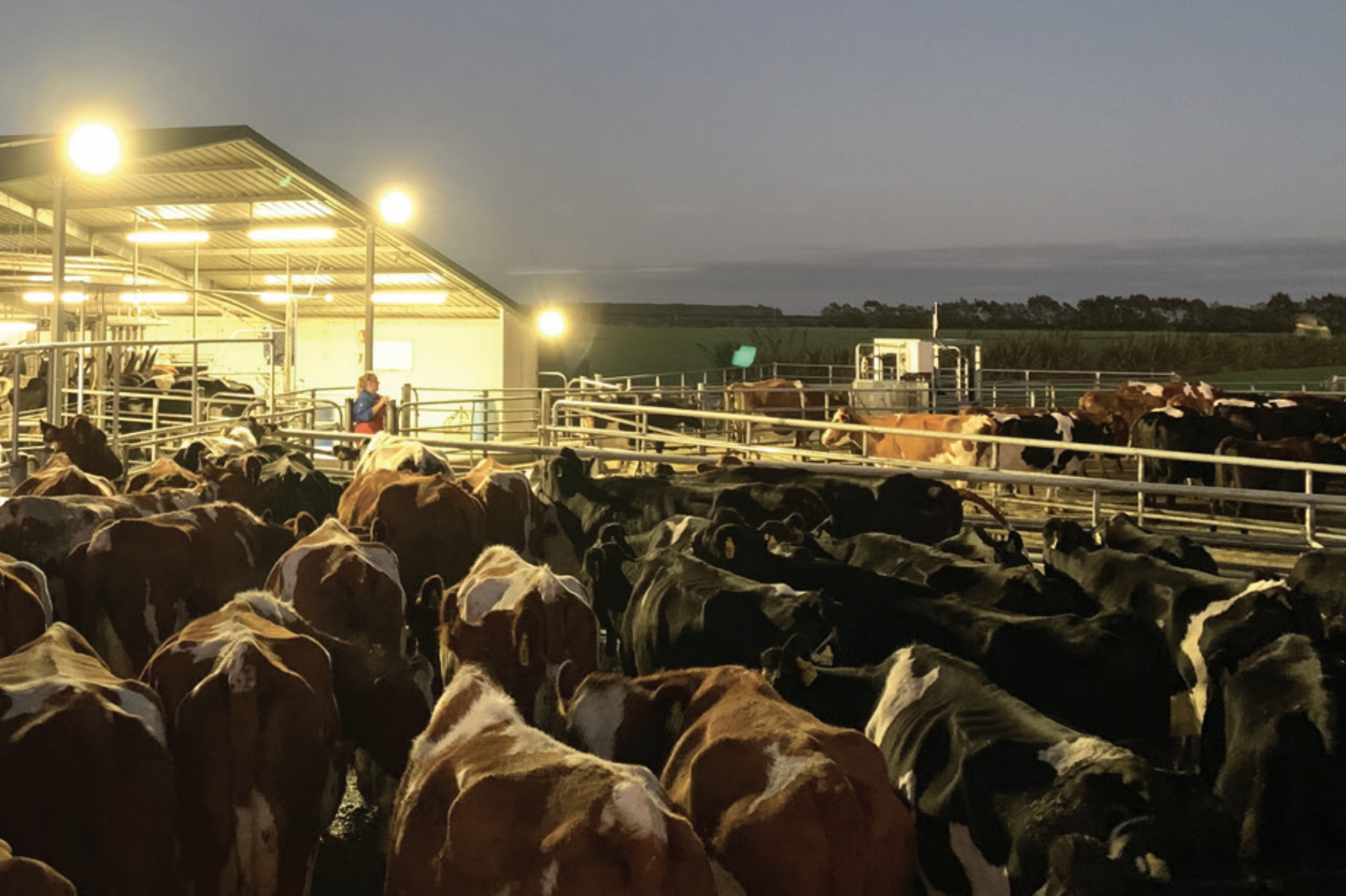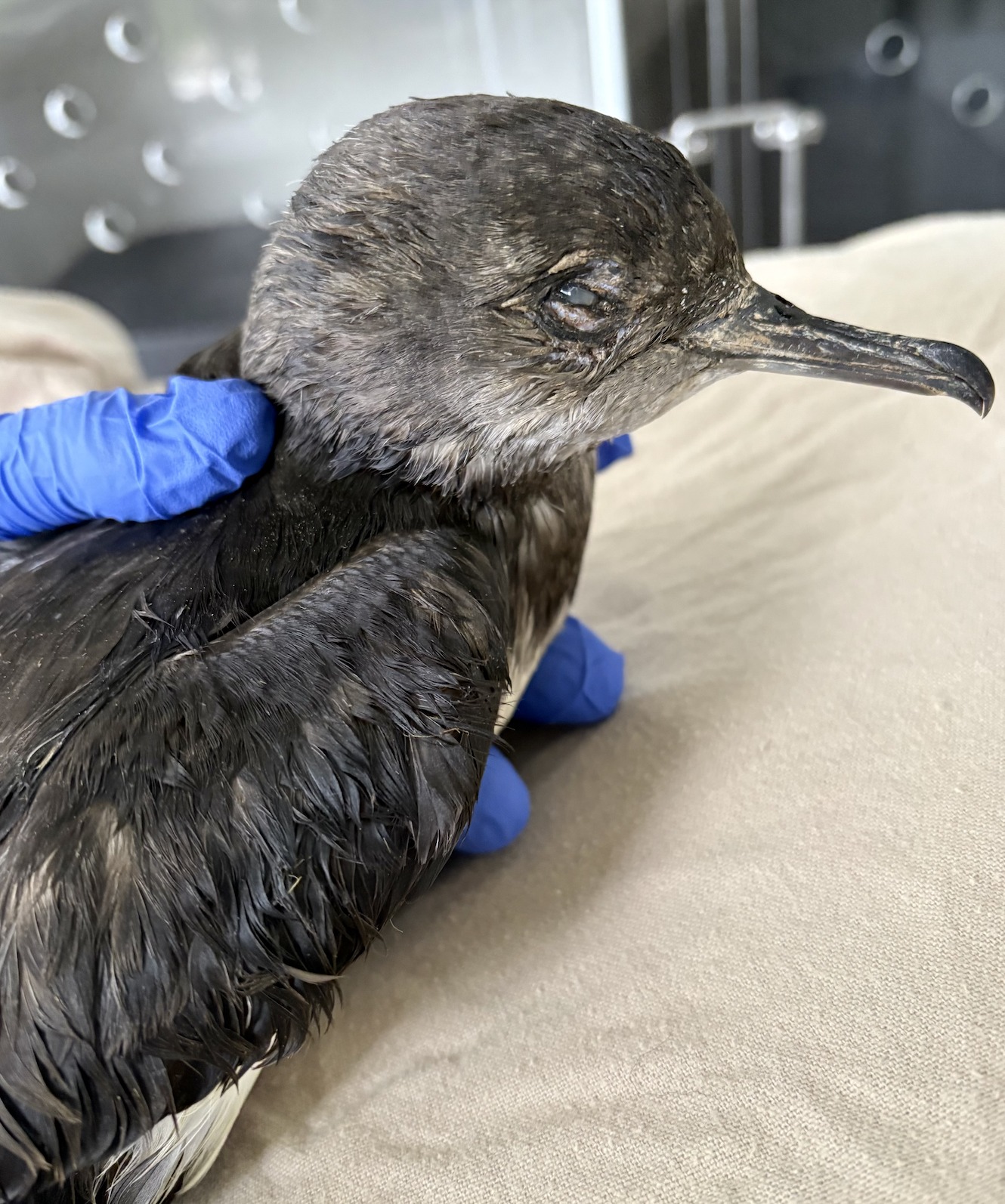 A well-lit Kaikoura dairy farm as cows wait to be milked before dawn
A well-lit Kaikoura dairy farm as cows wait to be milked before dawn
What seems to be a previously unidentified threat has been reported for the globally Endangered Hutton’s Shearwater Puffinus huttoni, a species endemic to the Kaikoura region of New Zealand’s South Island. The following text and photographs have been edited from a Facebook post by the Kaikoura Wildlife Hospital.
“This rare nocturnal seabird is disorientated by artificial lighting (streetlights, residential and commercial lighting) along the flight path from the sea to the only two remaining mountain colonies, resulting in crash landing. Upon nightfall shearwaters fly inland to the Seaward Kaikōura Range and make their way to sea at dawn.
External lighting at milking sheds at dawn results in hundreds of shearwaters crash landing each breeding season, if not thousands. Most go unnoticed or unreported. There is also an assumption that being a bird, they will take off again. Hundreds of shearwaters have been documented circling over milking sheds due to disorientation, with up to 40 shearwaters crash landing at a time. Once grounded shearwaters are unable to take off without a thermal updraft and require urgent rescue. Without rescue they succumb to crash landing injuries, cat/dog predation, dehydration, starvation, vehicle strike and cattle trampling.”

A Hutton’s Shearwater rescued from a milking shed where it had been mauled by a cat, causing blindness that required euthanasia
“Capping external lighting, using warm colour temperature light bulbs (amber vs white) and utilising motion sensors where possible, are key to reducing crash landing likelihood at milking sheds.”
John Cooper, Emeritus Information Officer, Agreement on the Conservation of Albatrosses and Petrels, 14 October 2025

 English
English  Français
Français  Español
Español